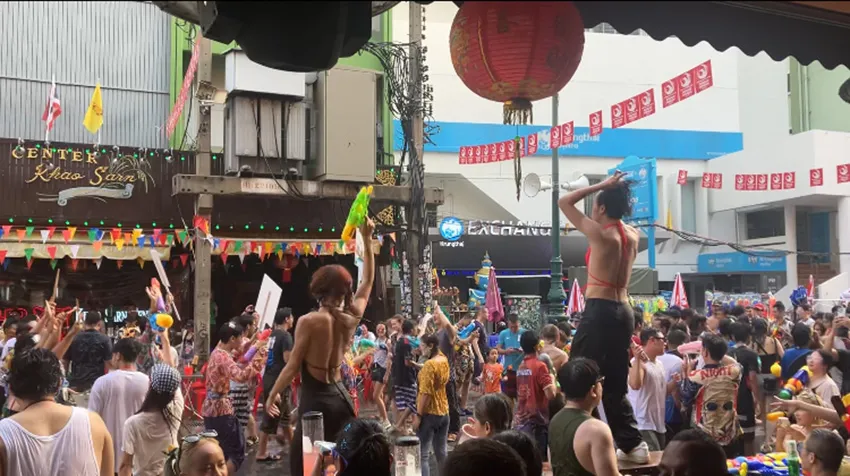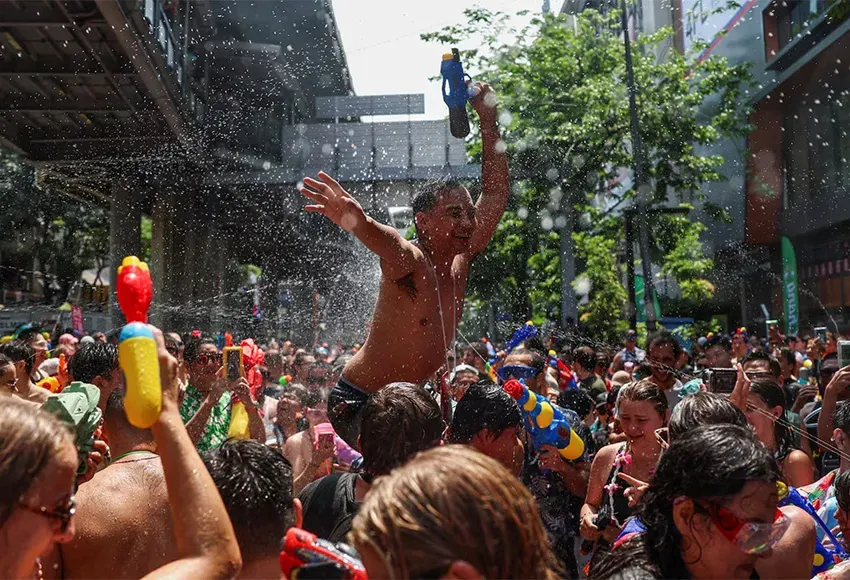Hello (or สวัสดี) from a drenched 23-year-old sitting in their Bangkok hotel room in the year 2567 BE!
If you're anything like I was before coming to Thailand, you're probably wondering why in the world I'm currently trying to dry all the water that has been dumped on me and how I'm able to write from the future. That, my dear reader, is because the people of Thailand are currently celebrating Songkran.
What is Songkran?
Songkran is Thailand's New Year's holiday (April 13–15), but the festivities take place the entire week surrounding it.
The reason Songkran celebrates the beginning of 2567 BE (Buddhist Era) is because Thailand uses the Thai solar calendar, which started when Buddha attained parinibbāna (nirvana after death). This places Thailand 543 years ahead of the Gregorian calendar used in the United States and elsewhere.
The holiday is traditionally celebrated by visiting local temples and cleaning Buddha statues, which can be found in every single building in the country (even fast-food chains). Pouring water on the Buddha represents purification and ridding oneself of sins and bad luck. It is also common for Thai people to take time off from work to visit loved ones and elders.
Modern Songkran
Like holidays back in the United States, the Thai people have used the festivities as opportunity for concerts, shows, and special sales.
The main way to celebrate, however, is through a massive water fight. Participants, of every age and from every country, take to the streets with water guns, hoses, and buckets for the most insane battle I've ever witnessed.
In the days leading up to the celebration, vendors line the streets with waterproof bags, hats, and glasses, and water guns of all shapes and sizes. I even saw a few vendors selling $30 water guns (very expensive for Thailand) with crazy accuracy.
In addition, people (typically children) with buckets of din sor pong, a type of whitish powder mixed with water, line the streets, covering people's faces with the mud. It is a tradition that symbolizes good luck, but it is also used to protect against the harsh Thai sun.
This happens on every major street in Bangkok every day. Some, like the infamous backpacker area Khao San Road, have gone as far as to shut down to traffic.

My experience
While preparing for my trip to Thailand, I had done extensive research, but I somehow missed the part where I would be part of a water-based war zone. Sure, I heard murmurs about the event when I landed in the country, but no one was able to articulate the sheer intensity of it.
When I say it's insane, I mean it's impossible for me to walk down the street or take a tuk-tuk without having a bucket of water dumped on me. Given that the temperature is 100 degrees every day, I'm generally fine with it. But there are several people who aim toward your eyes and/or will drench you in ice-cold water. I've found this is especially prevalent when passing bars or clubs filled with drunk and/or high patrons.
That being said, the energy of the event has been incredible, as Bangkok has essentially turned into a perpetual party of happy, wet people. While this event was not on my bucket list, I think it should be on yours!


